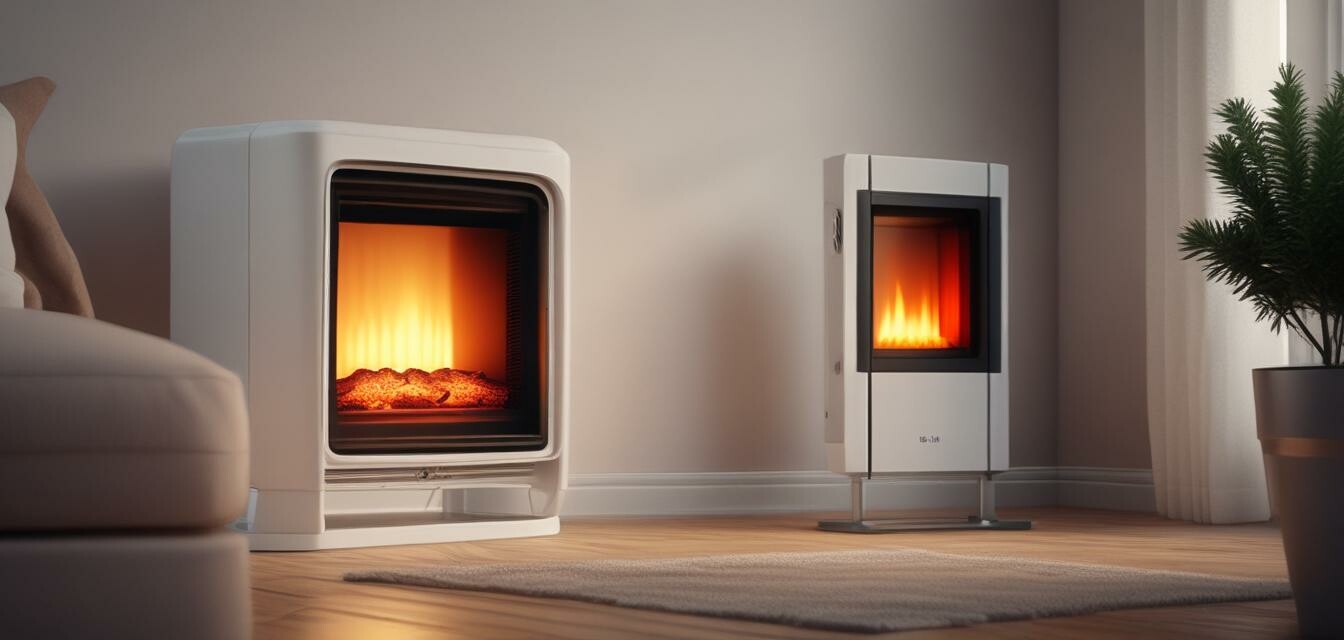
Traditional vs. Wifi Heaters: Which is Better?
- Wifi heaters offer superior control and convenience.
- Traditional heaters rely on established technology and are often less expensive upfront.
- Energy efficiency is a crucial factor for many consumers choosing their heating solutions.
- Smart features like app connectivity give wifi heaters an edge in modern homes.
- Assess your heating needs and preferences to make the best choice for your space.
Choosing the right heating solution for your home can be a tough decision. With the rise of technology, many homeowners are faced with selecting between traditional heating systems and the innovative wifi heaters. In this article, we will explore the key differences between traditional heating options and wifi heaters, providing you the insights you need to make an informed decision for your home.
Understanding Traditional Heating Options
Traditional heating solutions include systems such as furnaces, radiators, and fireplaces. These have been the mainstay of home heating for many years. Below are some of the common types of traditional heating methods:
| Type of Heating | Description | Advantages | Disadvantages |
|---|---|---|---|
| Furnaces | Uses gas or electricity to heat air and distribute it through ducts. | Effective heating; can heat entire home; less expensive initial investment. | Can be noisy; higher energy bills; potential for gas leaks. |
| Radiators | Heats water and distributes it through pipes to radiators in rooms. | Consistent warmth; often more energy-efficient. | Slower to heat up; requires regular maintenance. |
| Fireplaces | Burns wood or gas to produce heat. | Aesthetic appeal; effective in smaller areas. | Limited coverage; requires continual fuel effort. |
The Rise of Wifi Heaters
Wifi heaters are a new wave of home heating technology that incorporates smart features designed for convenience and efficiency. Let's discuss the advantages of wifi heaters:
Pros
- Remote control via smartphone apps
- Energy-efficient with programmable settings
- Instant heating capabilities
- Customizable settings for different zones in the home
Cons
- Higher upfront cost than traditional heaters
- Dependent on steady internet connectivity
- Some may require learning curve on app usage
Comparison of Features
When it comes to deciding between traditional and wifi heaters, it’s important to compare their features side-by-side:
| Features | Traditional Heaters | Wifi Heaters |
|---|---|---|
| Remote Control | No | Yes |
| Smart Home Compatibility | No | Yes |
| Programmable Timers | Limited | Extensive programming options |
| Energy Usage Tracking | No | Yes |
| Installation Costs | Generally lower | Generally higher |
Consumer Preferences and Trends
A significant trend in the heating solutions market is the increasing consumer preference for wifi heaters. This shift is largely driven by:
- Greater demand for energy efficiency
- Growing interest in smart home technology
- Desire for convenience in home management
Making the Choice
As you consider the pros and cons of each heating option, assess what matters most to you. Here are some points to ponder:
- If you value convenience and control, wifi heaters may be the best fit.
- If your priority is low initial investment, traditional systems can be more accessible.
- Remember energy bills; this often makes a significant difference in overall costs.
Conclusion
Ultimately, the choice between traditional and wifi heaters comes down to your personal needs and lifestyle. With the balance of convenience and efficiency that wifi heaters offer, alongside the reliable comfort of traditional systems, it is essential to clearly assess your requirements.
Further reading
For more information on different types of heating solutions, check out our Buying Guides for Wifi Heaters page, or if you're interested in energy-efficient options, visit our Energy-Efficient Wifi Heaters category.
Explore other innovations and trends that can enhance your home environment by visiting our Latest News on Wifi Heaters blog post or learn about the Smart Home Heaters that are setting new standards in home heating.
Whichever option you choose, staying informed about the latest trends in home heating will help you make the best choice tailored to your needs.